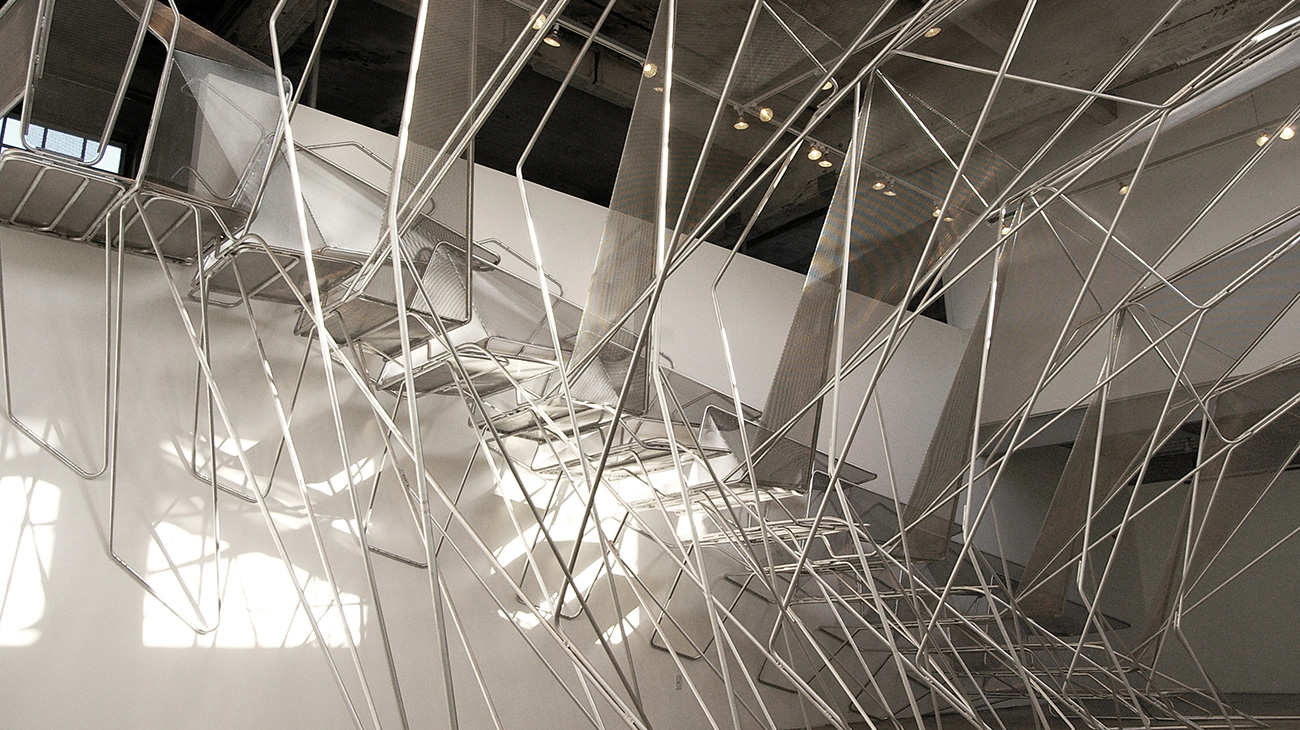Emerging Voices winner profile
Oyler Wu Collaborative

Oliver Wu Collaborative | Live Wire, SCI-Arc Gallery Installation, Los Angeles, CA, 2008. Image courtesy Oyler Wu Collaborative
The Architectural League’s annual Emerging Voices program spotlights North American architects, landscape architects, and urban designers who have significant bodies of realized work and the potential to influence their field.
Oliver Wu Collaborative won a 2012 award.
Relocating from New York to Los Angeles in 2004, Oyler Wu Collaborative has utilized the last seven years to establish a way of working that is committed to experimentation and innovation through a relentless hands-on approach to their work. Heavily invested in academia, they consider it their obligation as instructors and architects to not only put ideas forward, but to test their application through work that melds artistic and intellectual aspirations with sophisticated fabrication expertise and environmental responsibility. They believe that ideas find their greatest potency through the feedback of human experience, material resistance, and iterative processes.
Eager to test their ideas, and impatient in their desire to see the effects of their work, Oyler Wu Collaborative has turned to their own love of building to transform small projects with modest budgets into a testing ground for ideas. Los Angeles and Taipei have served as invaluable test beds for their ambitions. The work included in their portfolio consists primarily (although not entirely) of work that they have built themselves. This way of working has grown out of necessity, an insistence on detail-driven work on small budgets, and out of the desire to allow the design process to continually respond to feedback provided by the fabrication process. It has required profound resourcefulness, and a way of thinking that leverages design to bring the work to a level more commonly reserved for more costly (not to mention wasteful) endeavors.
The lack of conventional separation between the architectural and construction fields has allowed them to use the construction phase as an extension of the design process. It has also provided a more direct translation of ideas from digital form to reality, while ensuring a level of articulation often difficult to achieve through a more conventional means of construction. This experience has led to an insistence on work that is flawlessly executed, and that is guided by the belief that the work should operate as well at the scale of a site plan as it does at the level of a connection. It has been a period of material discovery, invention, and experimentation that comes only through the difficult, but profoundly rewarding task of realizing the work on a given site. Most importantly, that knowledge has brought with it new concepts for building that go beyond the material itself—one that is interested in extending the role of experimental work to better engage ideas of use and human engagement.
